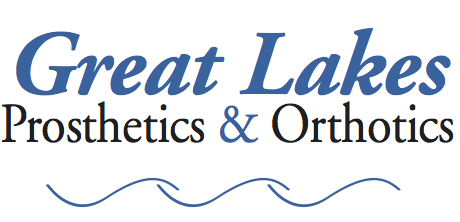About Our Practice
Great Lakes has been locally owned and located in Washtenaw County since 2003 and they are committed to providing excellent care to their patients throughout Southern Michigan.
The practitioners and their facility are fully accredited by the American Board for Certification (ABC) and focused exclusively on providing premium Prosthetic and Orthotic services, and all practitioners hold advanced degrees in Orthotics and Prosthetics.
All services are provided by an ABC Board Certified Orthotist or Prosthetist.
Their staff has combined over a 100 years of experience providing high quality Prosthetic and Orthotic services in Southern Michigan.
Each practitioner is highly skilled and uses state of the art techniques and components to deliver the best care possible in a timely manner. Their professional care extends beyond the initial fitting and fabrication to the continual monitoring of a patient's progress and rehabilitation.
Great Lakes offers pre-surgical consultations with patients and their physicians and participates in clinical research.
They are on call 24 hours a day for emergency services.
Visit today for an evaluation and please check out our News section for more information.
It's all about relationships...
The relationship between a prosthetist and an amputee is crucial for several reasons. Here are some benefits of a good prosthetist-amputee relationship:
-
Personalized Care: A good prosthetist takes the time to understand the unique needs, goals, and lifestyle of the amputee. They work closely with the individual to design and fit a prosthetic device that aligns with their specific requirements and preferences.
-
Expertise and Knowledge: Prosthetists are highly trained professionals who possess extensive knowledge about prosthetic devices, materials, and fitting techniques. By establishing a good relationship, amputees can benefit from their expertise and stay informed about the latest advancements in prosthetic technology.
-
Collaboration and Communication: A strong prosthetist-amputee relationship promotes open communication and collaboration. Amputees can openly discuss their concerns, challenges, and expectations with their prosthetist. In turn, the prosthetist can provide guidance, address any issues, and make necessary adjustments to optimize the fit and function of the prosthetic device.
-
Ongoing Support and Follow-up: The journey of living with a prosthetic limb involves ongoing adjustments and adaptations. A good prosthetist offers continuous support and follow-up care to ensure that the amputee is comfortable, satisfied, and achieving their goals with the prosthetic device. They can address any fit or function issues that arise over time and make necessary modifications.
-
Education and Training: A prosthetist plays a crucial role in educating and training the amputee on how to properly use and maintain their prosthetic device. They provide instructions on donning and doffing the prosthesis, exercises to improve mobility and strength, and guidance on maintaining optimal prosthetic fit and function.
-
Emotional Support: Adjusting to life with limb loss can be emotionally challenging. A good prosthetist understands the emotional impact of limb loss and provides empathy, encouragement, and emotional support throughout the rehabilitation process. They can connect amputees with support groups or counseling resources to help them cope with the psychological aspects of limb loss.
-
Lifelong Relationship: A prosthetist-amputee relationship is often a long-term commitment. As an amputee's needs and circumstances change over time, their prosthetist can continue to provide guidance, modifications, and updates to their prosthetic device. This ongoing relationship ensures that the amputee receives the best possible care and support throughout their journey.
In summary, a good prosthetist-amputee relationship offers personalized care, expertise, collaboration, support, education, and a lifelong commitment to optimizing the fit, function, and overall well-being of the amputee. Building a strong partnership with a trusted prosthetist is essential for achieving the best possible outcomes in prosthetic rehabilitation.
